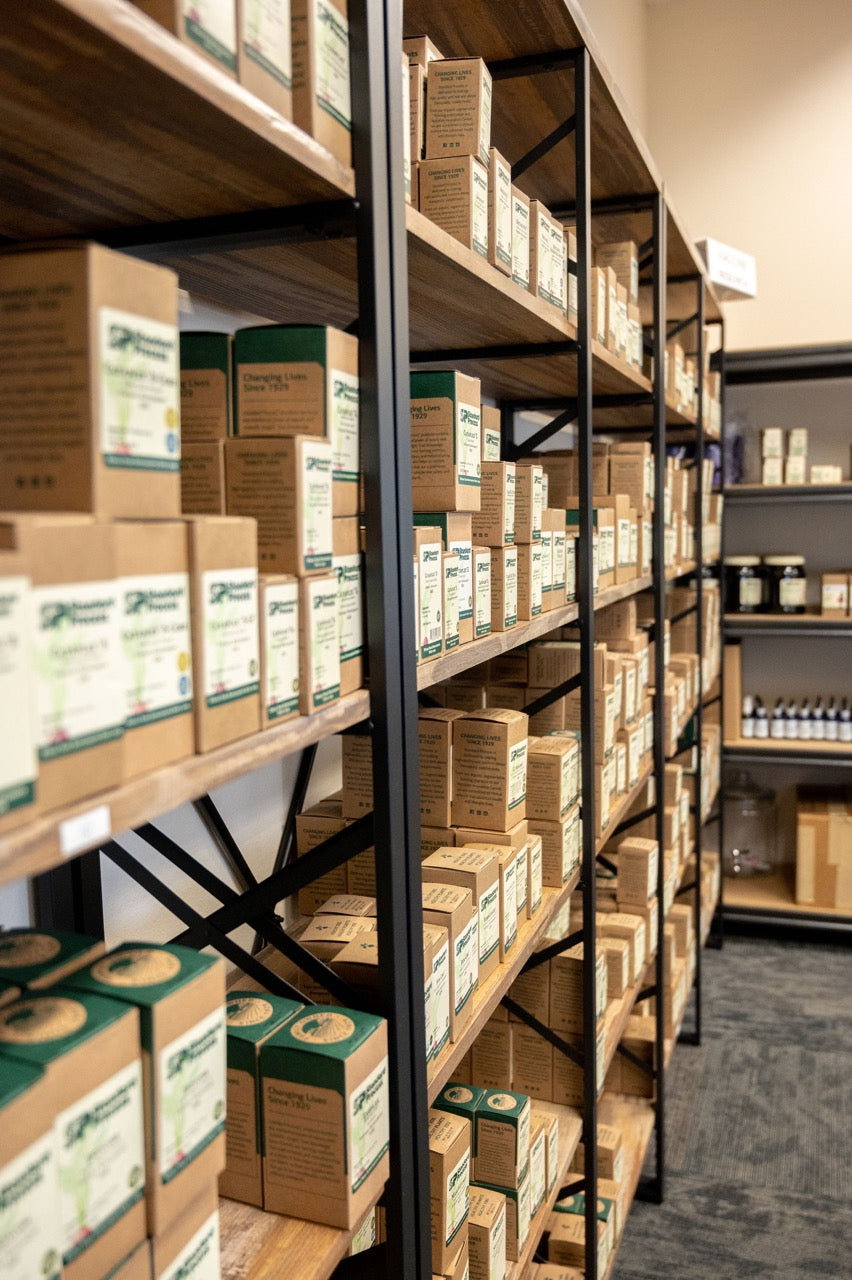Turmeric Benefits for Women: Natural Remedies for Optimal Health
Turmeric, filled with a powerful thing called curcumin, can help keep your skin youthful and glowing. This magic spice battles something called free radicals which can make skin age before its time. And guess what? Turmeric doesn't stop there. It also plays in the field of women's health beyond the skin. Some studies show it might even help with things like periods and having babies. Now, isn't it time we talked more about this golden wonder?
Turmeric offers several potential benefits for women, including its anti-inflammatory properties that may help alleviate symptoms related to conditions like menstrual cramps and menopause. Additionally, its antioxidant properties may support overall health and wellness in women. Incorporating turmeric into meals or enjoying it as a tea can be a simple way for women to experience these potential benefits.

Antioxidant Effects of Turmeric for Skin and Ageing
Imagine your skin as a battlefield where free radicals wage war against its youthful appearance. Free radicals are unstable atoms that can cause damage to our skin cells, leading to aging signs like wrinkles, fine lines, and dullness. Enter turmeric, a natural warrior armed with a bioactive compound called curcumin.
Curcumin is more than just a trendy buzzword in the skincare industry. Studies have shown that it has impressive antioxidant properties, making it an excellent ally in the fight against the visible signs of aging. By neutralizing free radicals, curcumin helps protect the skin from oxidative stress, which is a major contributor to premature aging.
These days, you'll find turmeric-infused skincare products lining the shelves of beauty stores, offering promises of rejuvenated skin and a youthful glow. Moreover, DIY face masks featuring turmeric have gained immense popularity among women seeking effective, natural solutions for skincare. The power of turmeric to combat the effects of aging on the skin has made it a go-to ingredient for many beauty enthusiasts.
That's not all; turmeric's antioxidant effects extend beyond preventing aging signs. It also aids in promoting an even skin tone and may support a healthy complexion overall.
Embracing Turmeric for a Radiant Glow
Now that we understand how turmeric's antioxidant properties can benefit our skin and tackle aging signs, let's explore some practical ways to incorporate it into our skincare routine.
Having grasped the remarkable impact of turmeric on skincare and aging signs, it's time to uncover its potential influence on fertility and menstrual cycle regulation.
Turmeric in Fertility and Menstrual Cycle Regulation
Female reproductive health significantly impacts the overall well-being of women. When it comes to matters of fertility and menstrual cycle regulation, many women naturally seek out natural remedies that could provide support. This is where turmeric, with its abundance of potential benefits, comes into the spotlight.
Studies suggest that curcumin, the active compound in turmeric, may play a role in regulating the menstrual cycle and potentially supporting fertility. The anti-inflammatory properties of curcumin could help balance hormones, which is essential for a healthy menstrual cycle. Moreover, curcumin's ability to combat oxidative stress might contribute to maintaining reproductive health.
Menstrual Cycle Regulation
The regularity and smooth progression of the menstrual cycle are dependent on the delicate balance of hormones and inflammatory processes within the body. Anything that disrupts this harmony can lead to irregular periods or other menstrual health concerns.
Curcumin, due to its anti-inflammatory properties, may aid in regulating the production and management of these important hormone levels. By promoting a balanced inflammatory response within the body, curcumin could potentially help alleviate discomfort associated with premenstrual syndrome (PMS) and contribute to overall menstrual well-being.
Fertility Support
For those seeking positive implications for fertility, studies have indicated that curcumin's antioxidant properties could offer a supportive role in reproductive health. Some research indicates that oxidative stress might adversely impact fertility by affecting reproductive organs and oocytes (immature eggs).

It's important to note that individual responses to turmeric can vary and consulting a healthcare provider for personalized advice on utilizing turmeric for fertility-related concerns is highly recommended. While turmeric holds promise as a natural remedy, professional guidance ensures safe and appropriate usage based on individual health factors.
Turmeric's potential impact on female reproductive health reveals ongoing research in offering hope for those seeking natural support in addressing menstrual irregularities and fertility concerns.
Turmeric for Pain and Inflammation Relief
Imagine adding a sprinkle of turmeric to a delicious and comforting curry or incorporating it into soothing herbal teas. These simple yet mindful choices can contribute positively to managing discomfort and promoting overall wellness.

Women Specific Issues and Turmeric Benefits

Women face various health challenges, from hormonal imbalances to menstrual discomfort and symptoms associated with menopause. In recent years, turmeric has gained attention for its potential in offering relief from some of these issues. Let's explore how turmeric's unique properties make it a valuable addition to a holistic approach to women's health.
1. Managing Polycystic Ovary Syndrome (PCOS)
PCOS is a common hormonal disorder among women of reproductive age. It can cause irregular periods, infertility, and excessive hair growth. The anti-inflammatory properties of curcumin, the active compound in turmeric, may help alleviate inflammation in the ovaries and reduce some symptoms associated with PCOS. Additionally, curcumin's ability to modulate hormonal activity can also potentially aid in managing the hormonal imbalances characteristic of PCOS.
Sarah, a 32-year-old woman diagnosed with PCOS, shared her experience incorporating turmeric into her daily routine. She noted a reduction in her menstrual irregularities and reported decreased discomfort related to her condition after regularly consuming turmeric supplements over several months.
2. Addressing Endometriosis Symptoms
Endometriosis is a painful condition where tissue similar to the lining inside the uterus grows outside the uterus. This can cause severe pain during menstruation and may lead to fertility issues. The anti-inflammatory nature of curcumin has been observed to alleviate pain associated with endometriosis and reduce the size of endometrial lesions. Its antioxidant properties may also offer protective effects against oxidative stress linked to endometriosis.
3. Alleviating Menopause Symptoms
During menopause, many women experience hot flashes, night sweats, sleep disturbances, and mood changes due to fluctuating hormone levels. While research is ongoing, some studies suggest that curcumin could potentially help manage these symptoms by mitigating inflammation and supporting hormonal balance through its regulatory effects.
Helen, a woman in her late 40s experiencing menopausal symptoms, found relief by incorporating turmeric into her diet. She noticed a reduction in the frequency and intensity of hot flashes after consuming turmeric tea daily for several weeks.
Turmeric's potential benefits for women's health are an exciting area of study, offering promising possibilities for managing various conditions and improving overall well-being. As we continue to delve deeper into the role of turmeric in addressing women-specific health issues, it becomes clearer that it can be a valuable component of holistic wellness strategies for women at different stages of life.
As we set our sights on exploring turmeric's impact on weight management, it becomes evident that its multifaceted benefits extend into another crucial aspect of well-being—where every step towards equilibrium is an achievement worth celebrating.
Turmeric's Role in Weight Management
Many people struggle with maintaining a healthy weight, and it's a common concern for women. Incorporating turmeric into your routine might offer some extra assistance. When we think about weight management, it's not just about looking better—though that can be a nice side effect. It's about feeling better and staying healthy. Turmeric brings a lot to the table in this regard, and that little yellow root could be a big asset on your wellness journey.
Metabolic Function: Our body's metabolism controls how much energy we burn and helps determine whether we gain or lose weight. Some studies suggest that curcumin, the active compound in turmeric, may impact metabolic function.
One way it might do this is by helping to increase the flow of bile, a fluid made by our liver that helps us digest fats. This means our body can break down fats more effectively, potentially leading to better weight management.
Fat Accumulation: Curcumin is believed to influence the way fat cells (adipocytes) develop and grow. This means that turmeric might play a role in preventing excessive fat buildup within our bodies.
So, incorporating turmeric into your diet might help support your body’s natural fat-burning processes. It's not a magical solution on its own, but as part of a balanced approach to health and wellness, it could make a noticeable difference over time.
And let’s not forget—turmeric isn't just beneficial for helping manage weight; it also offers various other health benefits. Its anti-inflammatory properties alone make it worth considering regardless of your specific health goals.
Weight management can be a complex topic, but remember: Small steps add up to significant changes over time. Integrating turmeric into your dietary routine, after consulting with a healthcare provider, is one small step toward natural wellness that you might find beneficial for your overall health and vitality.
Integrating Turmeric into Women's Diet
When it comes to enhancing overall well-being, women understand that having a balanced and nutritious diet is a crucial part of their self-care routine. Turmeric, with its wealth of benefits, adds another layer of support to this foundation. Integrating turmeric into your diet doesn't have to be complicated or unenjoyable; instead, it can be as simple as exploring various recipes and finding creative ways to include this golden spice in your daily meals.
One way to incorporate turmeric into your diet is through the use of spices and seasonings. For example, try adding a pinch of turmeric while cooking rice or lentils for an extra burst of flavor and health benefits. Furthermore, consider sprinkling turmeric onto roasted vegetables before baking, or mixing it into dressings for salads to give your meal an added nutritional boost.
Combining turmeric with black pepper has been shown to enhance the absorption of curcumin in the body. This is important because curcumin is the active compound in turmeric responsible for its many health benefits. Including black pepper in your recipes, such as turmeric-infused soups or stews, not only improves the taste but also helps ensure that you're getting the most out of the turmeric you consume.
For those who enjoy beverages like smoothies, incorporating turmeric is as easy as blending it with fruits and other superfoods. A classic "golden milk" recipe featuring turmeric, along with milk and honey, is also a popular way to consume this beneficial spice.

By exploring these diverse methods of incorporating turmeric into your diet, women can enjoy its health benefits while savoring a variety of flavorful dishes.
After learning how to integrate turmeric into your diet for optimal health, let's now turn our attention to understanding the risks and precautions associated with its consumption.
Understanding Risks and Precautions with Turmeric Consumption
Turmeric is a popular and widely used spice, but as with all supplements, it comes with potential risks and precautions that should be heeded. While turmeric is generally safe when consumed in normal food amounts or as an ingredient in dietary supplements, some individuals may experience side effects from high doses or long-term use.
For instance, higher doses of turmeric may lead to mild side effects such as stomach upset, nausea, dizziness, or diarrhea. This is why it's important for women to be mindful of their dosages, especially if they are pregnant, breastfeeding, or have specific health conditions.
Potential Interactions with Medications
Moreover, turmeric can interact with certain medications, potentially impacting their effectiveness. For example, individuals taking blood-thinning medication or those with bleeding disorders should exercise caution when consuming turmeric, as it may slow blood clotting and increase the risk of bleeding.
Imagine turmeric as a powerful herb that can affect how other medicines work in your body. Like a chef carefully balancing flavors in a dish, one must also carefully balance turmeric consumption with any existing medication regimen.
This is particularly important for women who might be taking medications for hormone-sensitive conditions, infertility concerns, or liver disease. The active compounds in turmeric can have an impact on hormone levels and may influence liver function, so it's crucial for women with these health considerations to seek medical advice before integrating turmeric into their diet.
Some may find these precautions overwhelming at first glance; however, considering the complexities of individual health needs and the importance of maintaining balanced wellbeing, it's always better to err on the side of caution.
By understanding the potential risks associated with turmeric consumption and considering individual health factors alongside professional guidance, women can make informed decisions about incorporating this beneficial spice into their diet.
Turmeric and Long-term Health Prospects for Women
The potential therapeutic benefits of turmeric extend far beyond its immediate effects. For women, it's especially important to consider the long-term advantages that come with regular consumption of this golden spice. Cognitive health, encompassing memory, attention, and overall brain function, is crucial as women age. Turmeric contains compounds linked to supporting cognitive function and potentially slowing down age-related decline. It's like giving your brain a daily workout session!
Furthermore, let's discuss cardiovascular health, another essential concern for women. Heart disease is a leading cause of female mortality worldwide, making it imperative to take proactive measures to maintain a healthy heart. Research has indicated that the anti-inflammatory and antioxidant properties of curcumin may contribute to cardiovascular health by supporting healthy blood vessels and cholesterol levels.
Staying connected with scientific developments and seeking professional advice will empower you to make informed decisions about integrating turmeric into your wellness routine for long-term health.
By prioritizing long-term health through the inclusion of turmeric in daily wellness practices, women can potentially benefit from improved cognitive function, heart health, and reduced risk of cancer. Stay informed about new research and always seek advice from healthcare professionals for personalized recommendations.






